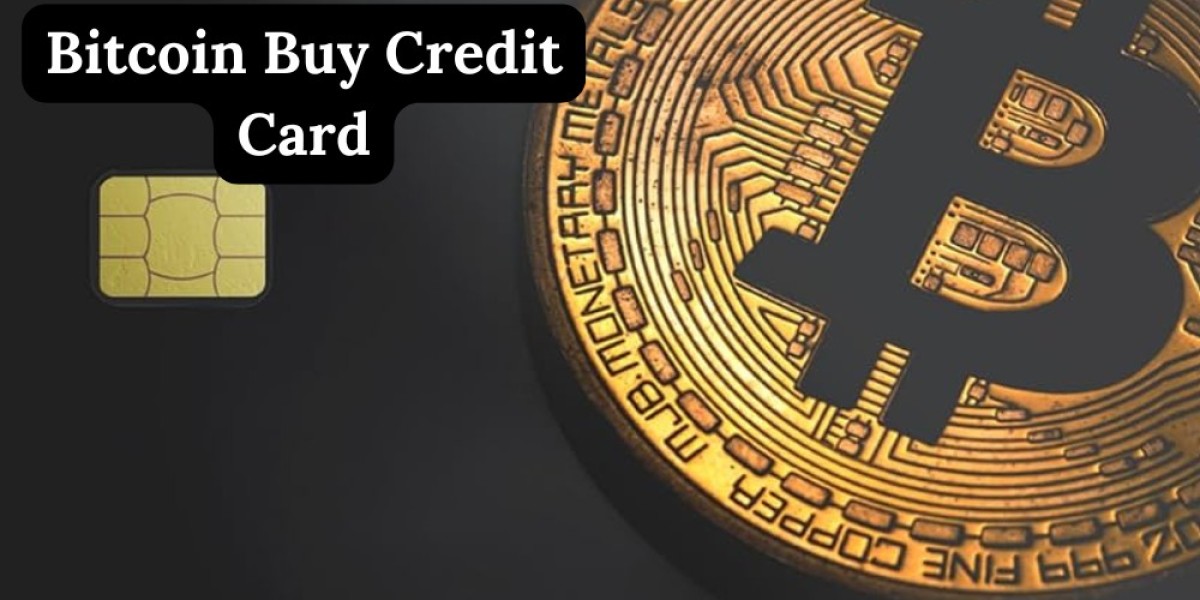Bitcoin has emerged as one of the most prominent cryptocurrencies, gaining widespread popularity due to its potential for high returns and decentralized nature. One of the most convenient ways to buy Bitcoin is through the use of a credit card. In this guide, we’ll explore how to buy Bitcoin with a credit card, the benefits and drawbacks, the steps involved, and important factors to consider.
What is Bitcoin?
Bitcoin is a digital or virtual form of currency that operates on a peer-to-peer network using blockchain technology. Unlike traditional currencies issued by governments, Bitcoin is decentralized and is not controlled by any central authority, making it resistant to inflation and interference.
Since its inception in 2009, Bitcoin has become a widely accepted digital asset, used for everything from online purchases to investment portfolios. As more people are looking to invest in cryptocurrency, buying Bitcoin with a credit card has become a popular method.
Why Buy Bitcoin with a Credit Card?
1. Convenience and Speed
Using a credit card to purchase Bitcoin is one of the fastest methods. The transaction is typically completed within minutes, allowing users to quickly invest in Bitcoin and take advantage of market opportunities.
2. Widespread Acceptance
Many cryptocurrency exchanges and platforms accept credit cards as a payment method, making it easy for new and seasoned users alike to buy Bitcoin with minimal hassle.
3. Credit Flexibility
If you don’t have the immediate cash available to buy Bitcoin, using a credit card can allow you to purchase the cryptocurrency while paying off the balance later, offering more flexibility in how you manage your finances.
How to Buy Bitcoin with a Credit Card: A Step-by-Step Guide
Buying Bitcoin with a credit card is a straightforward process, though it involves several important steps. Here's a breakdown of the procedure:
1. Choose a Cryptocurrency Exchange or Platform
The first step is to choose a cryptocurrency exchange or platform that supports credit card payments for Bitcoin purchases. Some of the most popular exchanges that accept credit cards include:
- Coinbase
- Binance
- Kraken
- Gemini
- eToro
2. Create an Account
Once you’ve selected an exchange, you’ll need to create an account. This typically involves providing your email address, setting up a password, and verifying your identity. Some platforms may also require KYC (Know Your Customer) verification, where you upload an ID to comply with anti-money laundering regulations.
3. Link Your Credit Card
After your account is set up, navigate to the payment settings and add your credit card information. Most exchanges will accept Visa or MasterCard, though some may also support other cards like American Express. Ensure your credit card is eligible for online transactions and has sufficient credit available.
4. Deposit Funds
With your credit card linked, you can now deposit funds into your account. Select Bitcoin (BTC) as the cryptocurrency you wish to buy and enter the amount of Bitcoin or the value in fiat currency (e.g., USD) you want to purchase.
5. Complete the Transaction
Once you’ve reviewed the amount and transaction details, confirm your purchase. You may need to verify the payment through a 3D Secure process, where you enter a one-time PIN or authentication code sent by your card provider.
6. Store Your Bitcoin
After the transaction is complete, your Bitcoin will be credited to your exchange wallet. For added security, it’s highly recommended to transfer your Bitcoin to a private wallet (either a hardware or software wallet) rather than leaving it in the exchange wallet.
Fees Associated with Buying Bitcoin with a Credit Card
While buying Bitcoin with a credit card is convenient, there are several fees to consider:
1. Transaction Fees
Exchanges typically charge a transaction fee for credit card purchases. These fees can range from 2% to 5% of the transaction amount, depending on the platform and your location.
2. Credit Card Issuer Fees
Some credit card companies treat Bitcoin purchases as a cash advance, which can result in additional fees, higher interest rates, and even a cash advance fee. It’s important to check with your credit card issuer before proceeding.
3. Exchange Rates
The exchange rate at the time of purchase may differ from what you expect, especially when buying with a credit card. You may not receive the same price for Bitcoin as you would when using bank transfers or other payment methods.
4. Withdrawal Fees
If you choose to transfer your Bitcoin to an external wallet, there may be additional fees for withdrawals. These vary by exchange but are usually a small flat fee or a percentage of the total transaction.
Benefits of Buying Bitcoin with a Credit Card
1. Instant Transactions
Buying Bitcoin with a credit card allows for fast transactions, so you can quickly capitalize on market fluctuations.
2. Security
Credit card payments are protected by your card issuer’s fraud protection and chargeback policies, adding a layer of security when making purchases.
3. No Bank Account Needed
For individuals who don’t have access to traditional banking services, buying Bitcoin with a credit card provides a way to invest in cryptocurrency without needing a bank account.
Drawbacks of Buying Bitcoin with a Credit Card
1. High Fees
Credit card purchases often come with higher fees compared to other payment methods like bank transfers or cryptocurrency transfers.
2. Risk of Debt
Using a credit card to buy Bitcoin can lead to debt accumulation if not managed properly. High interest rates and fees can quickly add up if the balance isn’t paid off on time.
3. Limited Purchase Amounts
Some exchanges and credit card issuers may impose limits on how much Bitcoin you can purchase with a credit card, limiting your ability to make large investments.
4. Potential for Fraud
Although credit card payments are generally secure, the cryptocurrency space is still somewhat unregulated, and there are scams to be aware of. Always use reputable platforms to reduce the risk of fraud.
Alternatives to Buying Bitcoin with a Credit Card
If the fees and risks of using a credit card to buy Bitcoin are too high, consider these alternative methods:
1. Bank Transfers
Bank transfers generally offer lower fees and higher limits for purchasing Bitcoin. However, they may take longer to process.
2. Peer-to-Peer (P2P) Platforms
P2P platforms like LocalBitcoins and Paxful allow users to buy Bitcoin directly from other individuals using various payment methods, including credit cards, bank transfers, or PayPal.
3. Bitcoin ATMs
Bitcoin ATMs allow users to purchase Bitcoin with cash or credit/debit cards. They are convenient but may have high transaction fees.
Conclusion
Buying Bitcoin with a credit card is a convenient, fast, and secure method to enter the cryptocurrency market. It is ideal for users who need to act quickly, want to leverage their credit, Bitcoin Buy Credit Card banking methods. However, it’s important to be aware of the fees and risks associated with this payment method, including high transaction fees, potential debt, and the possibility of fraud.








